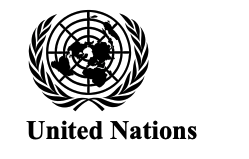
Report
As the main asset of the United Nations system is its staff, learning is an indispensable tool in improving quality and efficiency. Through learning, staff can develop new knowledge and skills, acquire new competencies and improve behaviours and attitudes. Learning is not optional; it is a sine qua non condition for the organizations and their staff to be able to adapt in a highly competitive and dynamic environment.
Moreover, the United Nations system cannot escape the transition to the future of work, which implies agility for organizations and continuous learning for individuals. According to recent studies, more than half of all employees in the world will require significant reskilling and upskilling in just the next three years. Such transformation can only be achieved by further learning.
For the United Nations system, learning can be also a transformative force that can break down silos, stimulate inter-agency cooperation, create synergies and increase efficiency in the use of resources, whether from regular budgets or voluntary contributions. Beyond the diversity of mandates and governance arrangements, the United Nations organizations are, after all, intergovernmental entities created and supported by the same Member States.
The main purpose of this review was to identify and recommend ways to optimize the intellectual capital represented by the staff of the United Nations, by means of learning.
_
AVAILABLE LANGUAGES
English
_
Published 2020

NICE JOB .
Please log in or sign up to comment.